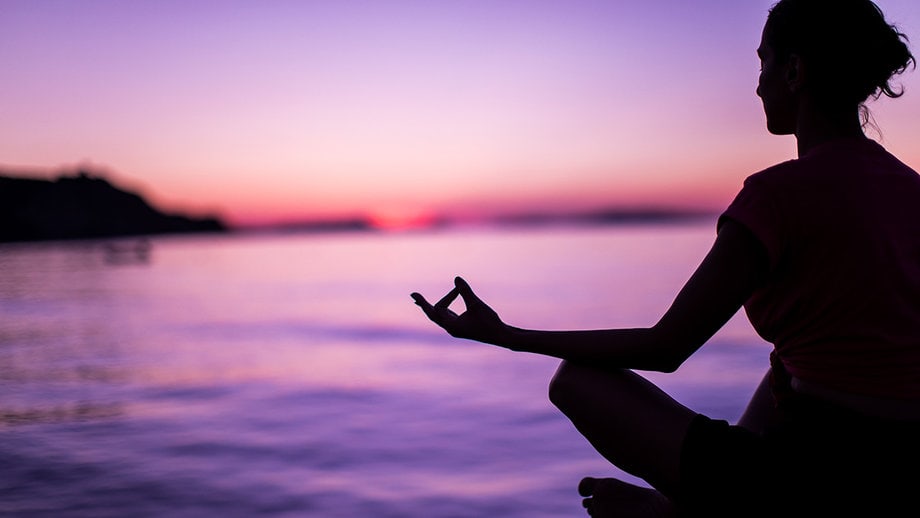Enhancing Well-Being Through Deep Relaxation: Mind-Body Connection

Are you looking to enhance your well-being and experience deep relaxation?
In this article, we will delve into the science behind relaxation and the mind-body connection, offering you techniques to achieve a state of deep relaxation.
Discover the numerous benefits of incorporating deep relaxation into your daily routine, and learn how mindfulness and breathing can further enhance your well-being.
Get ready to create a relaxation routine that will optimize your overall health and happiness.
Key Takeaways
- Relaxation techniques activate the parasympathetic nervous system, promoting a state of calm and reducing stress hormones like cortisol.
- Managing stress through exercise, self-care activities, and mindfulness can improve overall well-being.
- Holistic healing, including natural remedies and meditation, can reduce stress levels and enhance immune function.
- Deep relaxation techniques, such as deep breathing, meditation, and progressive muscle relaxation, can effectively manage stress levels and improve mental clarity and physical health.
The Science Behind Relaxation and Well-Being
To understand the benefits of relaxation and its impact on your well-being, you must delve into the science behind it.
The science behind relaxation reveals that when you engage in relaxation techniques, such as deep breathing or progressive muscle relaxation, it triggers your body’s relaxation response. This response activates the parasympathetic nervous system, which promotes a state of calm and reduces stress hormones like cortisol.
As a result, your heart rate and blood pressure decrease, while your immune system strengthens. Studies have also found that relaxation techniques can improve sleep quality, enhance cognitive function, and even alleviate symptoms of anxiety and depression.
Understanding the Mind-Body Connection
When it comes to the impact of stress on your overall well-being, it’s important to take a holistic approach.
Stress not only affects your mental state, but it can also have physical and emotional consequences.
Impact of Stress
Stress can have a significant impact on your overall well-being. It’s important to understand the effects of stress and find effective stress management techniques to maintain a healthy mind and body.
Here are three ways stress can affect you and how to manage it:
- Physical Health: Stress can lead to headaches, muscle tension, and even weaken your immune system. To manage stress, try engaging in regular exercise, practicing deep breathing exercises, and getting enough sleep.
- Emotional Well-being: Stress can cause anxiety, irritability, and even depression. Take time for self-care activities like meditation, journaling, or spending time with loved ones to help manage stress and improve your emotional well-being.
- Cognitive Functioning: Stress can impair your ability to concentrate, make decisions, and even affect your memory. To combat this, try practicing mindfulness, setting realistic goals, and breaking tasks into manageable steps.
Holistic Approach Benefits
Take a moment to consider the various ways a holistic approach can benefit your overall health and wellness. By embracing holistic healing and incorporating natural remedies into your lifestyle, you can experience a profound transformation in your well-being. This approach recognizes the interconnectedness of the mind, body, and spirit, and aims to address the root causes of any imbalances or ailments you may be experiencing.
Here is a table that highlights some of the key benefits of adopting a holistic approach:
| Holistic Healing Benefits | Natural Remedies |
|---|---|
| Reduces stress levels | Herbal remedies |
| Promotes relaxation | Aromatherapy |
| Enhances immune function | Meditation |
Techniques for Deep Relaxation
To achieve deep relaxation, you can try practicing techniques such as deep breathing and progressive muscle relaxation. These techniques can help you to calm your mind, release tension, and promote a sense of inner peace.
Here are three techniques that can enhance your relaxation experience:
1) Breathing exercises: Take slow, deep breaths in through your nose, hold for a few seconds, and then exhale slowly through your mouth. Focus on the sensation of your breath entering and leaving your body. This simple practice can help to reduce stress and bring a sense of calmness.
2) Meditation techniques: Find a quiet and comfortable space where you can sit or lie down. Close your eyes and bring your attention to the present moment. You can choose to focus on a mantra, a specific object, or simply observe your thoughts without judgment. This practice can help you to quiet your mind and achieve a state of deep relaxation.
3) Progressive muscle relaxation: Start by tensing and then relaxing each muscle group in your body, one at a time. Begin with your toes and work your way up to your head. As you release the tension in your muscles, you will experience a deep sense of relaxation and tranquility.
The Benefits of Deep Relaxation for Well-Being
When it comes to reducing stress, improving mental clarity, and reaping physical health benefits, deep relaxation techniques can be a game-changer.
By incorporating these techniques into your daily routine, you can effectively manage stress levels and experience a greater sense of calm and tranquility.
Not only will this help clear your mind and improve your focus, but it can also have a positive impact on your physical well-being, such as lowering blood pressure and boosting your immune system.
Stress Reduction Techniques
Feeling overwhelmed? Try incorporating stress reduction techniques into your daily routine for a sense of calm and relaxation. Here are three strategies to help you manage stress and find inner peace:
- Practice deep breathing: Take a few moments each day to focus on your breath. Breathe in slowly through your nose, and exhale deeply through your mouth. This simple technique can help slow down your heart rate and reduce feelings of anxiety.
- Engage in physical activity: Exercise is a great way to release built-up tension and boost your mood. Whether it’s going for a run, practicing yoga, or taking a dance class, find an activity that you enjoy and make it a regular part of your routine.
- Prioritize self-care: Take time for yourself to relax and recharge. This could involve taking a warm bath, reading a book, or indulging in a hobby you love. Remember, self-care is not selfish; it’s essential for your overall well-being.
Incorporating these stress management strategies and relaxation techniques into your daily life can help you find balance and alleviate the burdens of stress.
Improved Mental Clarity
Need a mental boost? Incorporating these stress reduction techniques into your routine can help improve your mental clarity and focus. When you feel overwhelmed or find it hard to concentrate, it’s important to take a step back and give your mind a break. By implementing these techniques, you can enhance your cognitive function and achieve improved focus in your daily life.
Here are some stress reduction techniques you can try:
| Technique | Benefits |
|---|---|
| Deep Breathing | Calms the mind and reduces stress |
| Meditation | Increases mental clarity |
| Exercise | Boosts cognitive function |
Deep breathing exercises can help you relax and clear your mind. Meditation allows you to quiet the mental chatter and find inner peace. Regular exercise not only improves your physical health but also enhances your cognitive function, leading to better focus and mental clarity.
Incorporating these stress reduction techniques into your routine will not only help you manage stress but also improve your overall mental well-being. Give them a try and experience the positive impact on your mental clarity and focus.
Physical Health Benefits
Now that you’ve learned about the improved mental clarity that comes with deep relaxation, let’s explore the physical health benefits. By incorporating deep relaxation techniques into your routine, you can enhance your physical well-being in numerous ways.
Here are three powerful benefits that physical therapy and exercise can provide:
- Improved Strength and Flexibility: Deep relaxation techniques can help you relax your muscles and increase your flexibility, allowing you to move more freely and with ease. This can lead to improved strength and overall physical performance.
- Pain Relief: Regular practice of deep relaxation can help alleviate chronic pain by reducing muscle tension and promoting blood flow. It can also help you manage conditions such as arthritis and fibromyalgia.
- Enhanced Recovery: Deep relaxation techniques can aid in the recovery process after physical therapy or exercise sessions. They help to reduce inflammation, promote tissue healing, and prevent muscle soreness, allowing you to bounce back faster and get back to your activities.
Incorporating deep relaxation into your routine can have profound effects on your physical health, allowing you to live a more active and pain-free life.
Integrating Mindfulness Into Your Relaxation Practice
To enhance your relaxation practice, try integrating mindfulness techniques into your routine. Mindfulness is the practice of being fully present and aware of your thoughts, emotions, and sensations in the present moment. It can help you cultivate a sense of calm and inner peace. One of the most effective mindfulness techniques is mindful breathing. Take a moment to focus on your breath, noticing the sensation of the air entering and leaving your body. This simple act can help bring your attention back to the present moment and calm your mind. Another way to incorporate mindfulness into your relaxation practice is by engaging in relaxation exercises. These exercises can include progressive muscle relaxation, body scans, or guided imagery. The table below provides a list of mindfulness techniques you can try:
| Technique | Description | Benefits |
|---|---|---|
| Mindful Breathing | Focus on your breath to stay present | Reduces stress and promotes relaxation |
| Progressive Muscle Relaxation | Tense and relax different muscle groups | Relieves muscle tension and promotes relaxation |
| Body Scan | Bring attention to different body parts | Promotes body awareness and relaxation |
| Guided Imagery | Visualize calming and peaceful scenes | Reduces anxiety and enhances relaxation |
Exploring the Role of Breathing in Relaxation
By focusing on your breath, you can bring a sense of calm and relaxation to your mind and body. Mindful breathing is a powerful tool that allows you to tap into your body’s innate ability to relax and unwind. Here are three ways in which breathing techniques can enhance your well-being:
- Deep belly breathing: As you take slow, deep breaths, imagine your breath flowing into your belly, filling it up like a balloon. Feel the tension melt away as you exhale, releasing any stress or anxiety.
- Box breathing: Inhale for a count of four, hold for a count of four, exhale for a count of four, and hold for a count of four. Repeat this pattern a few times, allowing yourself to fully immerse in the present moment and let go of any thoughts or worries.
- Alternate nostril breathing: Close your right nostril with your thumb and inhale deeply through your left nostril. Then, close your left nostril with your ring finger and exhale through your right nostril. Repeat this cycle, feeling a sense of balance and harmony with each breath.
Creating a Relaxation Routine for Optimal Well-Being
To create a relaxation routine for optimal well-being, start incorporating these breathing techniques into your daily practice.
Deep breathing is one of the most effective relaxation techniques you can use. Take a slow, deep breath in through your nose, filling your lungs completely. Then, exhale slowly through your mouth, releasing any tension or stress. Repeat this process several times, allowing yourself to fully relax with each breath.
Another technique to include in your routine is progressive muscle relaxation. Start by tensing and then releasing each muscle group in your body, from your toes to your head. This helps to release physical tension and promote a sense of relaxation.
Frequently Asked Questions
How Does Deep Relaxation Affect Physical Health?
Deep relaxation, such as reducing stress, can have a positive impact on your physical health. It can boost your immune system, helping you to stay healthy and improve overall well-being.
Can Deep Relaxation Help Improve Sleep Quality?
Deep relaxation can help improve sleep quality by reducing stress and promoting a calm state of mind. When you relax deeply, your body and mind can unwind, leading to better sleep.
Are There Any Risks or Side Effects Associated With Deep Relaxation Techniques?
There may be some risks or side effects associated with deep relaxation techniques, so it’s important to be aware of them. It’s always best to consult with a healthcare professional before starting any new relaxation practice.
How Long Does It Take to Experience the Benefits of Deep Relaxation?
It varies for each individual, but with regular deep relaxation, you’ll start experiencing the benefits sooner. Factors like frequency, duration, and your level of stress can affect how quickly you feel the positive effects.
Can Deep Relaxation Techniques Be Used as a Form of Therapy for Mental Health Conditions?
Yes, deep relaxation techniques can be used as therapy for mental health conditions. They can help reduce anxiety and alleviate symptoms of depression by promoting a calm state of mind and reducing stress levels.







